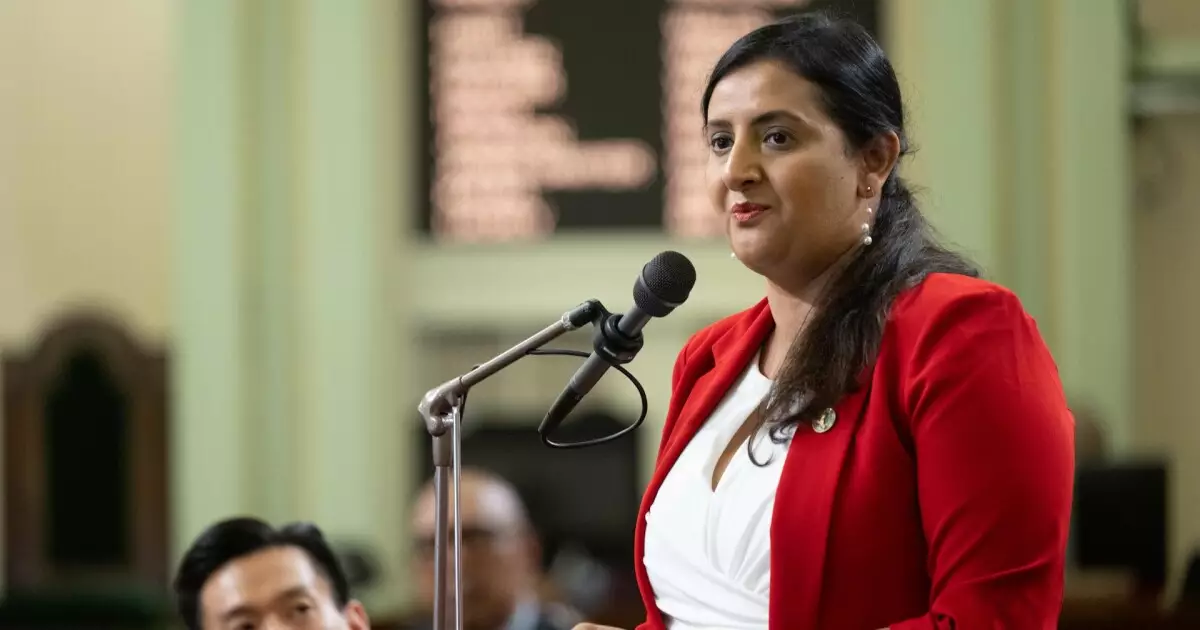In a bold—and arguably reckless—move, California Governor Gavin Newsom recently enacted Assembly Bill 100, authorizing an astounding $2.8 billion injection into Medi-Cal, the state’s version of Medicaid. This funding allocation is presented as a necessary response to “higher-than-anticipated” costs associated with expanding health care services. However, the decision demonstrates a troubling trend of prioritizing ideological commitments over fiscal responsibility. Propelled largely by a political agenda to provide healthcare access to undocumented immigrants, this financial maneuver raises critical questions about the sustainability and accountability of California’s budgetary practices.
The bill’s funding strategy is one part of a sprawling $11.3 billion budget revision tied to the 2024-25 fiscal year. While the notion might sound appealing, the implications are far more complex. The Governor’s original claim of a $6.5 billion expenditure quickly escalated to a staggering $9.5 billion, exposing a glaring lack of foresight in fiscal planning. Such a discrepancy is not merely a number; it symbolizes an unsettling trend of financial overreach driven more by ideology than common sense.
Local Impact and the Taxpayer’s Burden
Critics, particularly from the Republican side, have expressed legitimate concern regarding the allocation of public funds to subsidize healthcare for undocumented immigrants under Medi-Cal. Assemblyman Carl DeMaio’s assertions are particularly resonant: he argues that providing healthcare to individuals who are not legally in the country exacerbates the challenges faced by many Californians who struggle with rising taxes and stagnant wages. By channeling billions into a program seen as a “gift” to illegal immigrants, the state risks alienating law-abiding taxpayers who are already grappling with an inflated cost of living.
For communities impacted by wildfires, the financial ramifications of Medi-Cal expansion are even more pronounced. The same budget meant to address Medi-Cal shortfalls will also serve as a lifeline for local governments facing decreased property tax revenues due to disaster-induced vacancies. The uneven distribution of resources, prioritizing undocumented populations at the expense of urgent local needs, poses the question: are California’s leaders serving their constituents, or are they championing a political agenda disconnected from the realities facing their electorate?
Aspirational Goals vs. Financial Realities
The debate surrounding this budgetary decision isn’t simply one of partisan politics. It serves as a focal point for broader discussions about how health care is financed in a state that continues to grapple with an affordability crisis. The question must be asked: is expanding Medi-Cal to include undocumented immigrants truly beneficial for Californian taxpayers, or does it perpetuate a cycle of economic strain?
Advocates for the program, including Democrats like Assemblymember Jasmeet Bains, make compelling arguments around the necessity of preventive healthcare. They claim that providing coverage reduces the burden on emergency rooms and ultimately lowers healthcare costs. However, this perspective often glosses over the immediate fiscal repercussions that come with expanding Medi-Cal eligibility. The fuller picture reveals a state teetering on the brink of economic uncertainty, as expenditures grow without a corresponding plan for income generation.
While it’s noble to aspire to a healthcare system that provides for all, one has to question the legitimacy of framing the issue solely in humanitarian terms, especially when it means diverting funds away from pressing local needs, such as wildfire protection and infrastructure improvements.
To Audit or Not to Audit?
Assemblyman DeMaio’s call for an audit of the Medi-Cal program isn’t merely a partisan maneuver; it is an essential check on a system that appears to be out of control. The fact that California has witnessed nearly a doubling of Medi-Cal’s general fund expenses over the last six years should raise red flags for every Californian, regardless of political affiliation. With total spending now at an eye-watering $188.1 billion, the need for transparency and accountability is critical.
As the state continues to expand benefits to undocumented immigrants, including full-scope Medi-Cal to all ages by 2024, fiscal prudence must become a priority. The Californian electorate deserves more than vague promises of budgetary health; they deserve a transparent and rational approach to governance that places their needs above ideological commitments to inclusivity. In an era when government spending faces intense scrutiny, California’s leadership must pivot from reckless ambition to fiscal responsibility or risk plunging the state deeper into financial turmoil.

